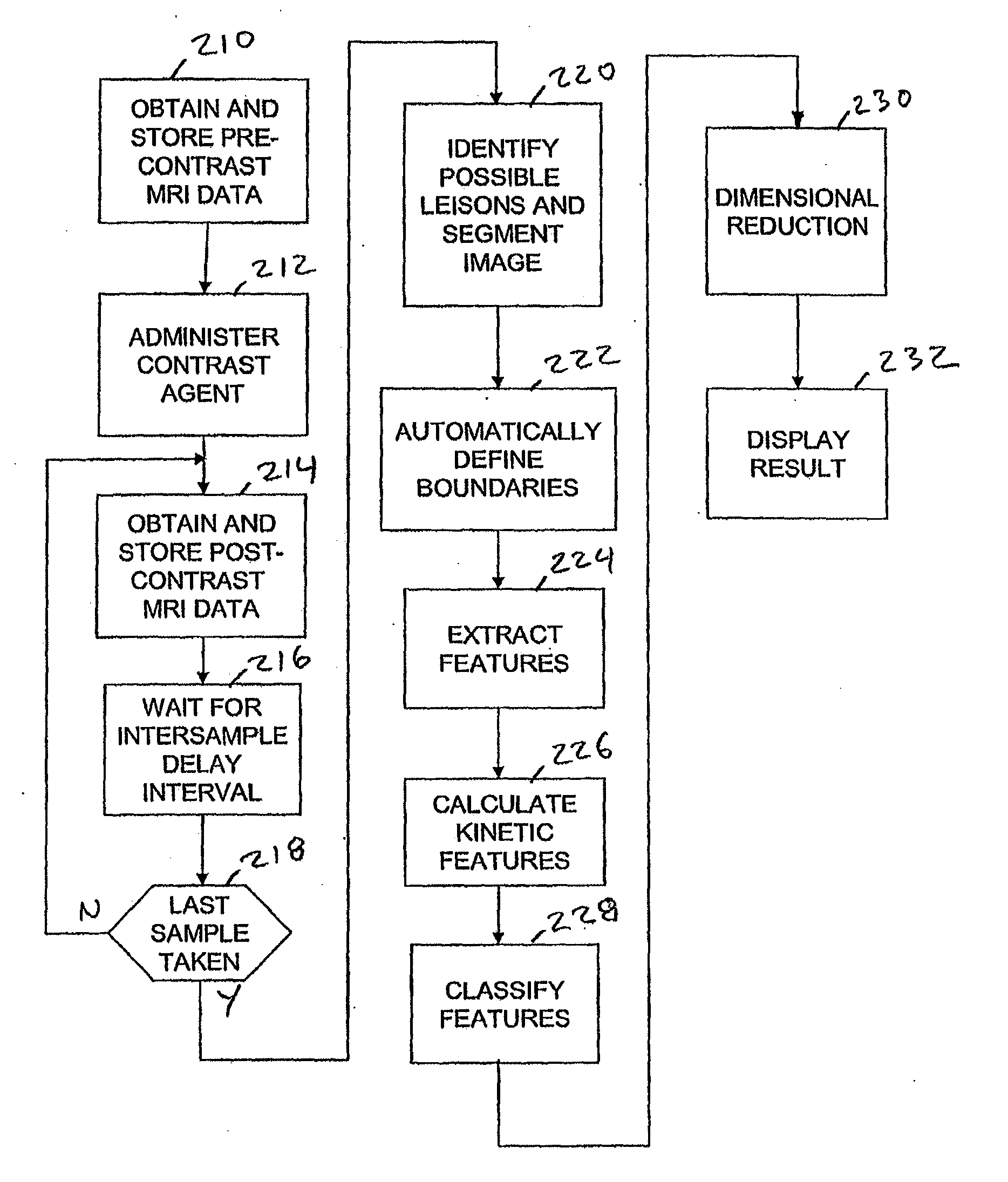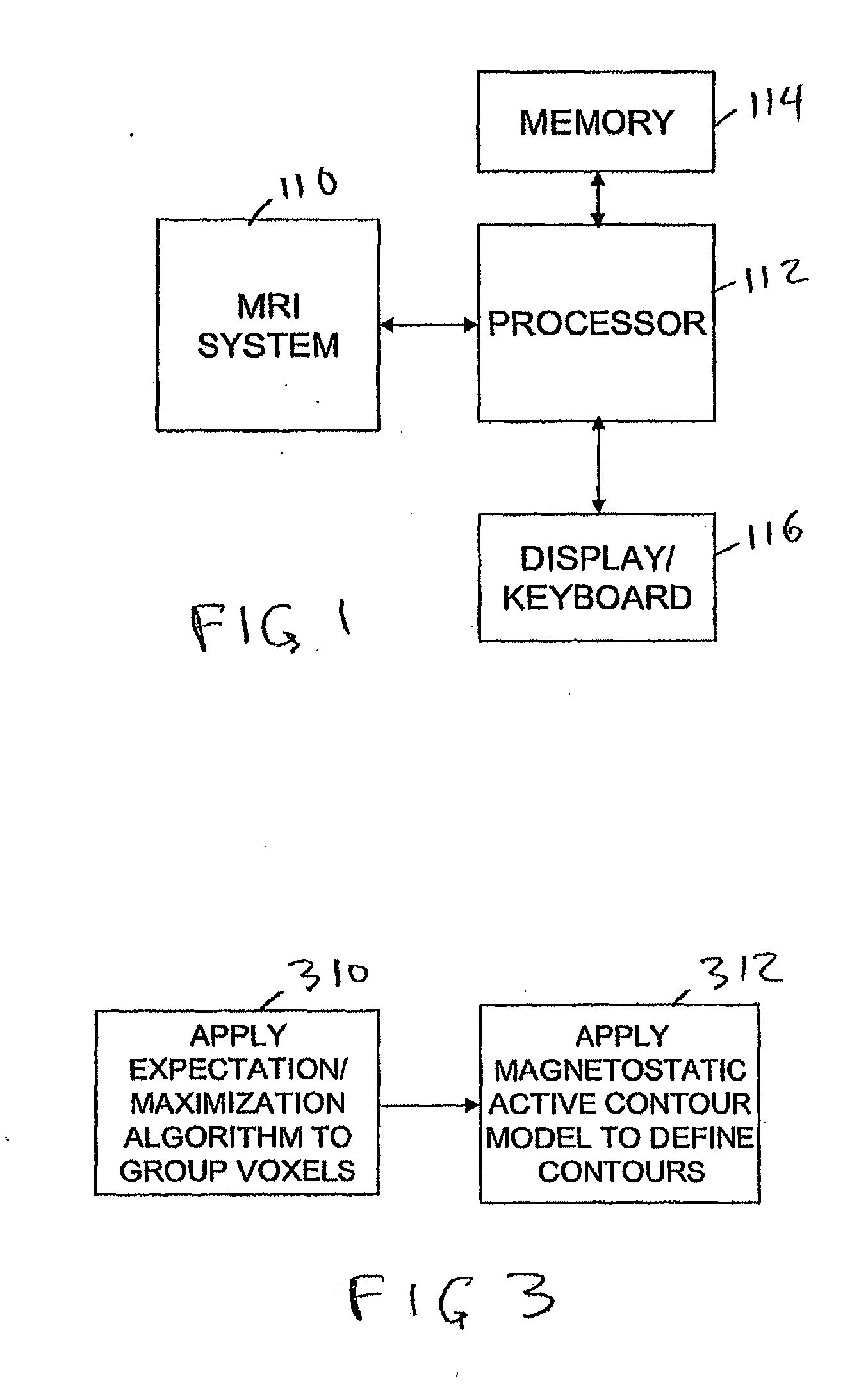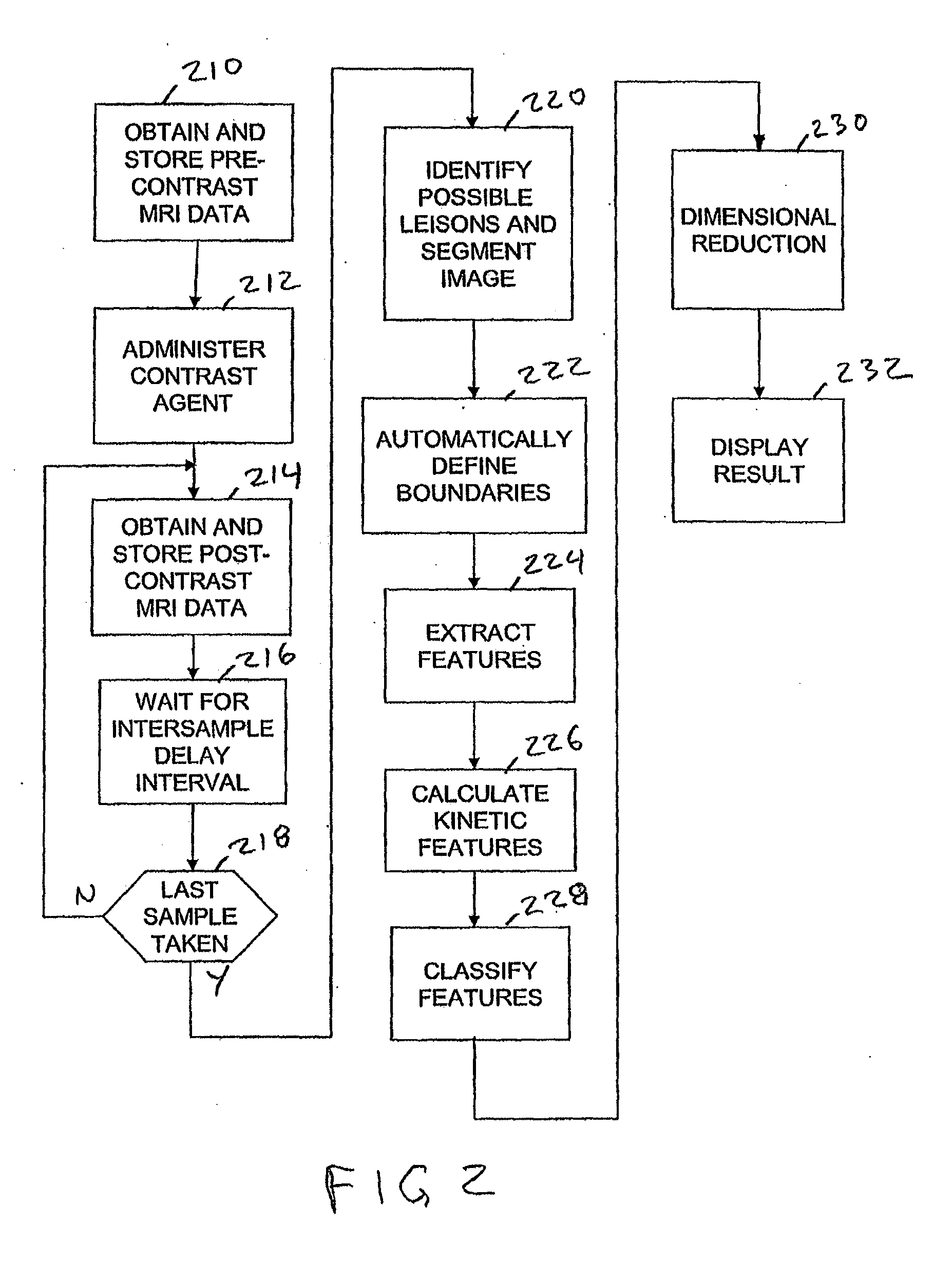Classification of biological tissue by multi-mode data registration, segmentation and characterization
a multi-mode data and biological tissue technology, applied in the field of biological tissue classification by multi-mode data registration, segmentation and characterization, can solve the problems of ineffective targeted therapies and less effective x-ray mammography in tn breast cancer screening than dce-mri, and achieve the effect of reducing the cost of x-ray mammography
- Summary
- Abstract
- Description
- Claims
- Application Information
AI Technical Summary
Benefits of technology
Problems solved by technology
Method used
Image
Examples
Embodiment Construction
[0016]While the embodiments of the subject invention described below concern the detection of breast tumors, it is contemplated that they may be applied generally to detecting and classifying possibly malignant lesions in other parts of the body based on DCE-MRI data. In addition, the invention may be applied to detect and classify non-malignant regions of interest (ROI) in a body.
[0017]For example, cardiovascular disease is one of the leading causes of death in the United States and world-wide. Atherosclerotic plaques are implicated in many acute cardiovascular events. Furthermore, asymptomatic vulnerable plaques may provide an even greater risk for these acute cardiovascular events. For example, stroke is currently the third largest killer in the United States, with millions dying every year. A more alarming statistic is that about 50% of women and about 64% of men who die from an acute atherosclerotic stroke report no prior symptoms.
[0018]Asymptomatic plaques, also known as vulne...
PUM
 Login to View More
Login to View More Abstract
Description
Claims
Application Information
 Login to View More
Login to View More - R&D
- Intellectual Property
- Life Sciences
- Materials
- Tech Scout
- Unparalleled Data Quality
- Higher Quality Content
- 60% Fewer Hallucinations
Browse by: Latest US Patents, China's latest patents, Technical Efficacy Thesaurus, Application Domain, Technology Topic, Popular Technical Reports.
© 2025 PatSnap. All rights reserved.Legal|Privacy policy|Modern Slavery Act Transparency Statement|Sitemap|About US| Contact US: help@patsnap.com



